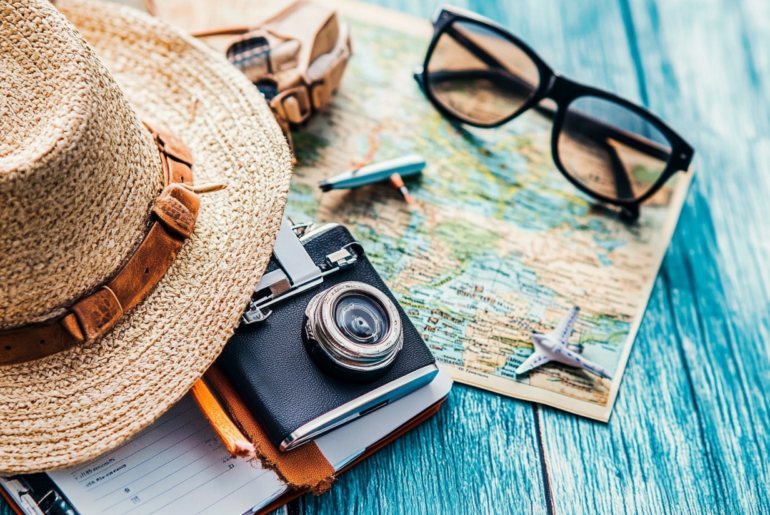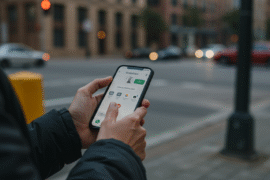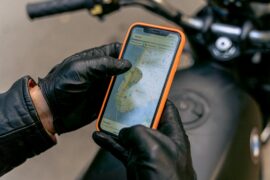This article may contain references to products or services from one or more of our advertisers or partners. We may receive compensation when you click on links to those products or services. Nonetheless, our opinions are our own.
The information presented in this article is accurate to the best of our knowledge at the time of publication. However, information is subject to change, and no guarantees are made about the continued accuracy or completeness of this content after its publication date.
Traveling abroad is one of life’s greatest experiences, but let’s be real—it can also get expensive fast. Flights, hotels, and even a simple meal at a touristy cafe can quickly eat up your budget. But here’s the good news: you don’t need to spend a fortune to have an unforgettable trip.
With a little planning and a few smart tricks, you can explore breathtaking destinations without constantly worrying about money. Want to know how? You’re in the right place! Whether you dream of walking through the historic streets of Rome or lounging on a tropical beach destination, we’ve got you covered.
So, let’s get started and help you travel smarter!
Book Your Tickets Online
Booking online can save you a lot of money. Whether it’s flights or attraction passes, planning ahead usually means better deals and fewer unexpected costs.
Start with your flights. Use comparison sites like Google Flights or Skyscanner to find the cheapest days to fly. Consider budget airlines, but always check for hidden fees. Some low-cost carriers offer cheap base fares. But they charge extra for luggage, seat selection, or even printing your boarding pass.
Then, think about attractions. Some famous and highly touristy sites, like the Colosseum in Rome, charge high entrance fees. So, book your Colosseum tickets or any other similar major site’s tickets online in advance. This helps avoid paying any extra and hidden in-person fees.
Some tickets even come with audio guides that enhance your experience. Just make sure to always buy from reputable sources to avoid scams or overpriced resellers. By booking online, you not only save money but also avoid last-minute stress. It’s one of the easiest ways to make your trip smoother and more enjoyable.
Save on Accommodation
Hotels can be one of the biggest travel expenses. But there are plenty of ways to cut costs without sacrificing comfort. First of all, you can consider alternative accommodations. If you’re traveling solo, hostels offer budget-friendly dorms, and some even provide free breakfast.
For longer stays, look into house sitting or home exchanges. Some platforms connect travelers with homeowners who need someone to watch their property while they’re away. In exchange, you get a free place to stay! Also, location matters.
Staying just outside the city center can be much cheaper. Lastly, always compare prices before booking. Many hotels and rental sites offer discounts for booking directly instead of through third-party platforms. These small savings add up over time!
Cut Down on Transportation Costs
Getting around in a new country doesn’t have to be expensive. Instead of taxis or rideshares, try using public transportation. Buses, metro systems, and trains are usually much cheaper and can give you a real taste of local life.
Consider city travel passes if you’re staying in one place for a while. Many cities offer unlimited ride passes for a set number of days. This can be cheaper than buying individual tickets. If you’re visiting multiple cities, look into regional or national rail passes—they can save you a lot compared to buying separate tickets for each trip.
For shorter distances, walking or renting a bike is a great way to explore. Not only is it free or low-cost, but it also lets you experience the city at your own pace. If you need a car, book rentals in advance and compare prices to avoid paying more at the last minute.
Voted "Best Overall Budgeting App" by Forbes and WSJ
Monarch Money helps you budget, track spending, set goals, and plan your financial future—all in one app.
Get 50% OFF your first year with code MONARCHVIP
Find Free Attractions
Some of the best experiences in a new country don’t cost a thing. Instead of spending money on expensive tours, look for free or low-cost activities. Many cities offer free walking tours, where local guides show you around in exchange for tips.
These tours are a great way to learn about a place without a big price tag. Museums and attractions often have free entry days or discounts for students and seniors. So check their websites before visiting.
Parks, beaches, and hiking trails are always free and offer a chance to experience the natural beauty of a place. Historical sites, local markets, and festivals can also give you an authentic feel for the culture without costing anything. A little research before your trip can help you find these hidden gems.
Eat Smart & Save on Food
Food is a big part of travel, but eating out for every meal adds up fast. The trick is to balance enjoying local cuisine without overspending. First, avoid touristy restaurants near major attractions. These places often charge higher prices for average food.
Instead, ask locals where they eat or look for small, family-run spots—they usually offer better food at lower prices. Street food is another great option. In many countries, it’s not only cheaper but also more authentic and delicious. Markets and food stalls let you try traditional dishes without the hefty restaurant bill.
If your accommodation has a kitchen, consider cooking a few meals yourself. Even something simple like breakfast or a packed lunch can help you save. For drinks, refill a reusable water bottle instead of buying expensive bottled water. Also, look for happy hour deals if you want to enjoy a night out without the high costs.
Be Smart About Money & Exchange Rates
How you handle your money while traveling can affect how much you actually spend. One of the biggest mistakes travelers make is exchanging currency at airports or tourist areas. These places often have high fees and bad exchange rates.
Instead, withdraw money from ATMs in the local currency. Look for ATMs with lower transaction fees and take out larger amounts at once to avoid multiple charges. If you use a credit card, make sure it has no foreign transaction fees.
Some travel-friendly cards also offer better exchange rates than cash exchanges. Always carry a mix of cash and cards. Some places, especially smaller towns or markets, might not accept credit cards. But don’t carry too much cash—losing it means it’s gone for good.
Lastly, use a travel budgeting app to track your expenses. It’s easy to overspend when using a different currency. So, keeping an eye on your spending can help you stay on track.
That’s a Wrap!
Traveling doesn’t have to be expensive. With the right planning, you can explore the world without breaking the bank. Booking tickets online, saving on accommodations, and being mindful of food and transport costs all add up to big savings.
So, now that you have these money-saving tips, your next adventure can be stress-free and budget-friendly. Happy travels!

Reviewed and edited by Albert Fang.
See a typo or want to suggest an edit/revision to the content? Use the contact us form to provide feedback.
At FangWallet, we value editorial integrity and open collaboration in curating quality content for readers to enjoy. Much appreciated for the assist.
Did you like our article and find it insightful? We encourage sharing the article link with family and friends to benefit as well - better yet, sharing on social media. Thank you for the support! 🍉
Article Title: The Best Ways To Save Money On Your Next Trip Abroad
https://fangwallet.com/2025/02/25/the-best-ways-to-save-money-on-your-next-trip-abroad/The FangWallet Promise
FangWallet is an editorially independent resource - founded on breaking down challenging financial concepts for anyone to understand since 2014. While we adhere to editorial integrity, note that this post may contain references to products from our partners.
The FangWallet promise is always to have your best interest in mind and be transparent and honest about the financial picture.
Become an Insider

Subscribe to get a free daily budget planner printable to help get your money on track!
Make passive money the right way. No spam.
Editorial Disclaimer: The editorial content on this page is not provided by any of the companies mentioned. The opinions expressed here are the author's alone.
The content of this website is for informational purposes only and does not represent investment advice, or an offer or solicitation to buy or sell any security, investment, or product. Investors are encouraged to do their own due diligence, and, if necessary, consult professional advising before making any investment decisions. Investing involves a high degree of risk, and financial losses may occur including the potential loss of principal.
Source Citation References:
+ Inspo












































